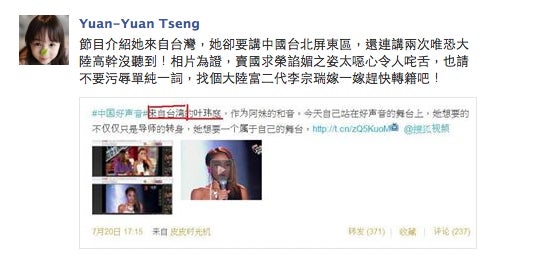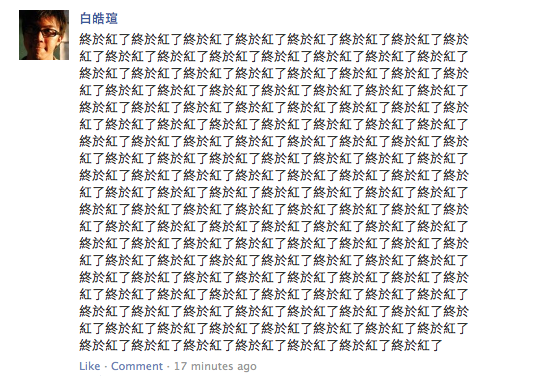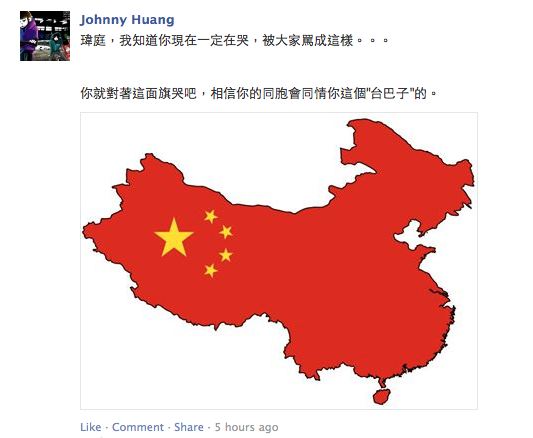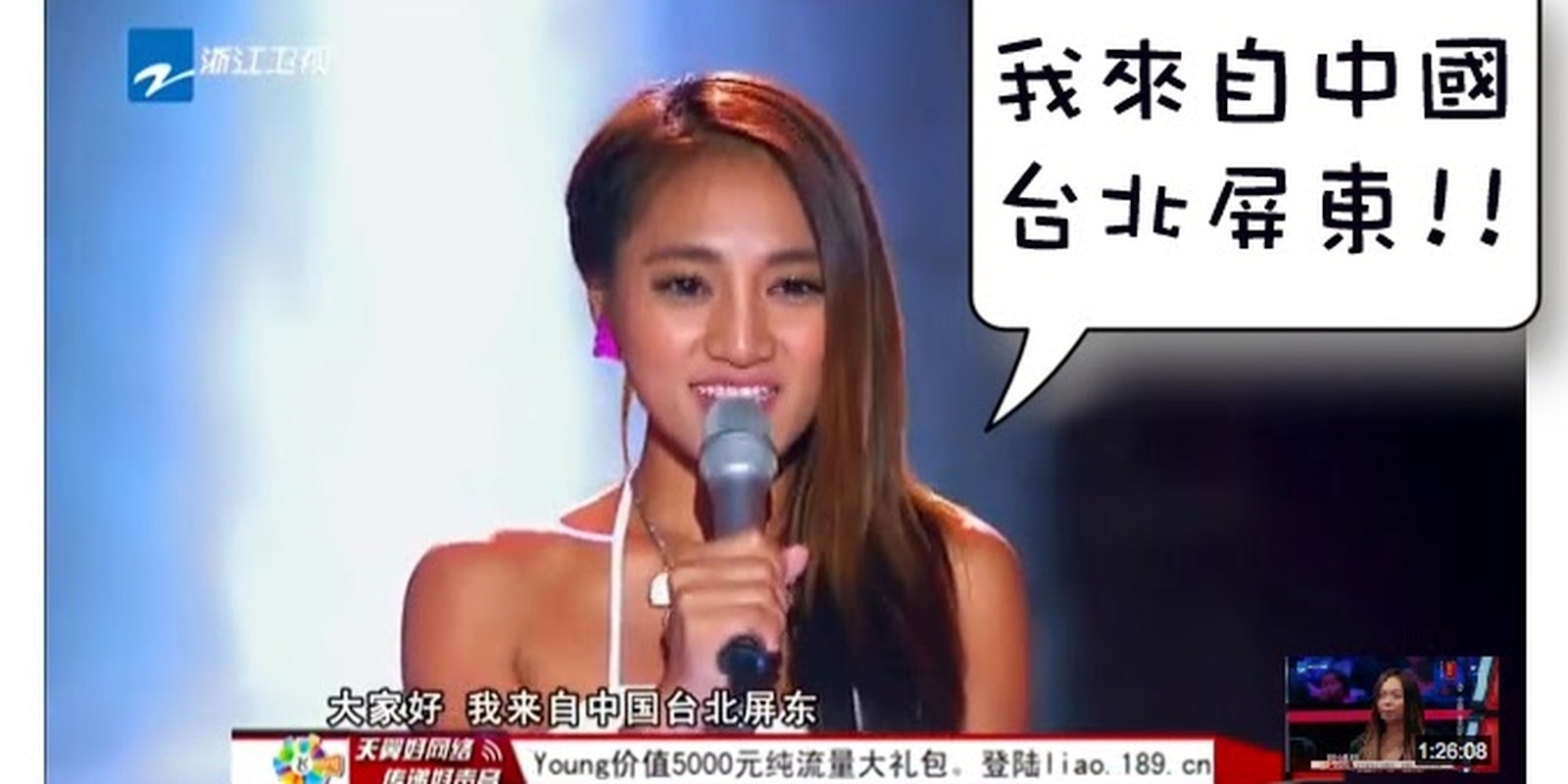Taiwan’s uneasy and often quite touchy political relationship with mainland China colors even the realm of lowest-common-denominator pop culture, as Uni, an aboriginal Taiwanese singer, recently found out.
Over the weekend, Uni appeared on The Voice of China, a familiar sort of musical competition reality show, this one imported from Holland, with the apparent hook that the judges don’t see the singer until their song is over.
But Uni’s brassy performance on a popular Chinese program wasn’t the problem here.
No, what the audience in Uni’s native Taiwan railed against—giving that video hundreds of thousands of views in the process—was her semantics. The singer, in her introduction, said she hailed from “China Taipei Pingtung District,” repeating that phrase later on.
The terminology surrounding Taiwan’s geopolitical status is complex and thorny, as the issue of China’s control over the island remains unresolved, with the lingering possibility of annexation and frustrated hopes of independence causing much friction. There seems to be little disagreement in Taiwan, however, that Uni committed a major gaffe.
Under pressure from the People’s Republic of China, Taiwan’s government in international affairs must often identify the region as “Chinese Taipei.” Not even in mainland China do they use the term “China Taipei,” instead favoring the more directly hegemonic “China Taiwan” to suggest Taiwan’s place as subservient province.
Reacting to a flood of negative comments on her Facebook page and across social media, Uni remarked that the show’s producers asked her to use the more common “China Taiwan Pingtung” in her introduction, but out of nervousness, she said “Taipei.” Fans weren’t buying it, especially as she appears to be the first Taiwanese contestant to add “China” to her place of origin.
Complicating matters further is Uni’s aboriginal background. Native Taiwanese are supposed to be more patriotic than the Han Chinese who have emigrated there over the years, and so the “China Taipei” flub scans as an even greater capitulation to the mainland, where, according to many Taiwanese, their not-quite-sovereign nation is regularly mocked.
A Taiwanese blogger captured and translated a few heated online reactions to the insta-scandal:
Most people used words like “可悲” (pathetic), “可恥” (disgraceful), “爛” (rotten), “滾出台灣” (get out of Taiwan), or “丟台灣人的臉” (made Taiwanese people lose face) to vent their anger. Here are some examples in the form of screen caps:

This girl pointed out that the show’s Weibo introduced her as “coming from Taiwan”, not “China Taiwan”, yet she still said she’s coming from “China Taiwan Pingtung”.

This netizen multiplied the phrase “終於紅了” (finally red) which means “finally famous”. He’s implying that she used “China Taipei” only to get more popular in China at the expense of angering Taiwanese.

This netizen pasted a flag of communist China and sarcastically remarked that “he knows she must be crying now because of all the attacks”. He suggested “she should cry with this flag and he’s sure that her Chinese fellows will sympathize with a Taibazi like her”. Taibazi (台巴子) is a derogatory term for Taiwanese used by Mainlanders.
One commenter, though, went on to note that it’s hardly unusual for Taiwanese celebrities to defer to Chinese authority when convenient.
Taiwanese people haven’t had a problem with Harlem Yu and A-Mei being judges on “The voice of China” and hilariously neither of them had absolutely no reaction to this girl denigrating Taiwan like this. It seems like if you’re a Taiwanese person going on one of these shows, its almost a requirement for your admission to say something stupid about the political status of the country. A-Mei, an aboriginal herself also seems to have forgotten the years her music was banned in China because the color of the RMB is filling her bank accounts is much more attractive than her old political views.
Whether Uni’s Chinese exposure will outweigh the uproar she’s caused in Taiwan, as the “finally famous” attack implies, remains to be seen, but it doesn’t look likely: on the mainland, they seem to consider this less an overture of friendliness and more a case of “poking the green turtle,” i.e., wantonly aggravating advocates of Taiwanese independence.
In other words, just more noise from an outlying province.
Photo via My Kafkaesque Life
